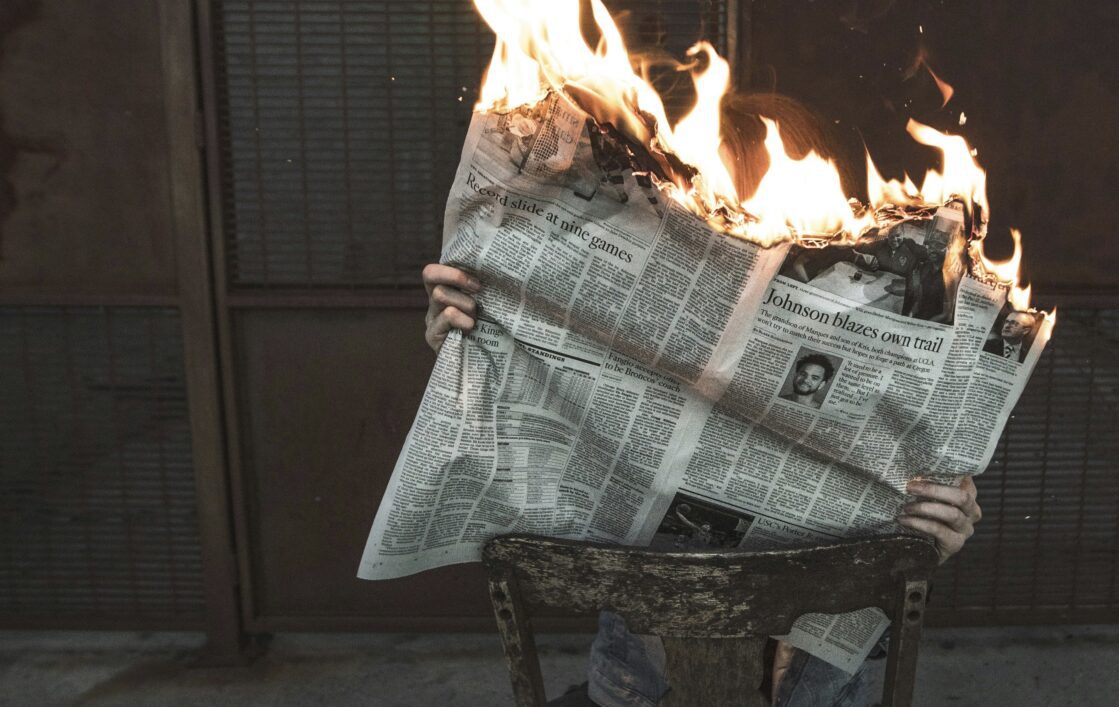The summary of the public perception & trust in the general news contained in the report ‘Trust in News in New Zealand 2024’ indicates a decline from an already low bar – it had fallen from 42% to only 33% with three quarters (thats 75%!!) of respondents commenting that they avoid the news due to perceptions of negativity & bias.
So when I attend an address by two media outlet owners whose principal thesis is that the media are good, honest, impartial & provide a balanced view of current issues, I quickly conclude that both of these things can’t be true at the same time.
When Edmund Burke coined the phrase in the 18th century, he famously referred to the press as the “Fourth Estate” during a parliamentary debate, emphasising its role as an independent observer & critic of government. For the sake of completeness, in that era, the medieval society, the first three estates referred to the clergy, nobility, & commoners – the Fourth Estate symbolised the media’s emerging influence over public affairs. Today, the other three estates are modern religious institutions, parliaments elected members & the citizenry.
The press was seen as an accountability mechanism that ensured transparency, accountability and integrity within the structures of power. Its core functions include:
-
- Providing accurate, timely, & relevant information to enable informed citizenship;
- Investigating government, corporate, & institutional actions to expose corruption, abuse, or mismanagement;
- Fostering public debate [keyboard bandits dropping bombs in the comments section at the end of an article is not public debate]; and
- Defending democratic rights like freedom of speech and freedom of the press, ensuring governments cannot operate in secrecy or without scrutiny.
A social contract exists between governments & electorates that underpins democratic legitimacy. It is based on the idea that governments are elected by the people to represent their interests & govern in their best interest.
Citizens can expect fair, free, & regular elections, transparent & accountable leadership, protection of individual rights & freedoms, equality under the law, and equal representation.
In return, governments’ responsibilities are to enact policies that reflect the will of the people, govern impartially & in the public interest, uphold democratic institutions & processes, and provide accessible avenues for public participation.
This contract ensures that power is derived from the people & that governments remain accountable to them. Breaching this contract erodes trust & weakens democracy.
The media weaken democracy through unbalanced, incomplete or biased reporting. The reasons for diminishing trust levels reported in the 2024 study suggest they have been found wanting. The result are things like the poor turnout of voters during elections at a local regional & national level, & suspicion of central agencies & the agendas of politicians.
Having interacted with media outlets, journalists & reporters for some years now I, along with others have seen the unfortunate decline in public discourse through the press. If the pre-conditions of objectivity, independence & impartiality are present, media outlets are considered professional & credible & contribute to their roles as trusted sources of information.
If one or more of those preconditions aren’t present, & the depth of analysis & understanding is traded off for headlines, clickbait, or personal agendas, readers, viewers & organisations alike quite rightly are sceptical, defensive & jaundiced about the media. Add to that the increasingly difficult commercial imperative for media organisations & the need to have ‘eyes-on’ becomes more important.
At that point, the clickbait-sensationalist model goes into overdrive, becomes a self fulfilling prophecy & the media machine eats itself.
So back to the media outlet owners address one final time….
The two owners espoused their new model of ‘quality journalism & original creative content’. What I’m observing however, is the conflation of ‘journalism’ & ‘creative’. That has resulted in a confused, & at times inaccurate & only partially complete series of stories that become fact through audience participation & the work of the keyboard bandits.
The Fourth Estates social contract with the citizenry & the government of the day needs a renegotiation. Otherwise the trust ratings will fall further & the role they play will continue to diminish.
We need a healthy Fourth Estate.



